
Mirissa: Paradise on the Southern Coast of Sri Lanka
Mirissa, located on the southern coast of Sri Lanka, is a hidden gem for beach lovers and adventure seekers alike. With its pristine sandy beaches and crystal-clear waters, Mirissa offers a tranquil setting that's perfect for relaxation. The town is famous for its laid-back vibe, making it an ideal destination for those looking to escape the hustle and bustle of city life. One of the main attractions in Mirissa is whale watching. This coastal town is one of the best places in the world to see blue whales in their natural habitat. From November to April, you can embark on a boat tour to witness these majestic creatures up close. The experience is both thrilling and humbling, leaving you with memories that will last a lifetime. Mirissa is also a haven for surfers. The waves here cater to both beginners and seasoned surfers, providing the perfect conditions to ride the waves. If surfing isn't your thing, you can explore the underwater world through snorkeling or diving. The waters around Mirissa are teeming with vibrant marine life, coral reefs, and shipwrecks, making it a paradise for underwater enthusiasts. For those interested in culture and history, a visit to the nearby town of Weligama is a must. Here, you can learn about the traditional stilt fishermen, a unique fishing method that has been practiced for generations. Additionally, the nearby Mirissa Vihara temple offers a glimpse into the local religious practices and provides a peaceful retreat for meditation and reflection. Food lovers will find Mirissa to be a culinary delight. The town boasts a variety of seafood restaurants that serve freshly caught fish, prawns, and crabs. Don't miss out on trying the local delicacies like Sri Lankan curry and hoppers. The night market is another highlight, where you can sample an array of street food while mingling with locals and fellow travelers.
Local tips in Mirissa
- Best time to visit for whale watching is from November to April.
- Carry sunscreen and a hat to protect yourself from the strong sun.
- Try the local seafood at the beachside restaurants.
- Rent a scooter to explore the surrounding areas at your own pace.
- Visit the night market for a taste of local street food and culture.
- Book your surfing lessons in advance, especially during peak season.
Mirissa: Paradise on the Southern Coast of Sri Lanka
Mirissa, located on the southern coast of Sri Lanka, is a hidden gem for beach lovers and adventure seekers alike. With its pristine sandy beaches and crystal-clear waters, Mirissa offers a tranquil setting that's perfect for relaxation. The town is famous for its laid-back vibe, making it an ideal destination for those looking to escape the hustle and bustle of city life. One of the main attractions in Mirissa is whale watching. This coastal town is one of the best places in the world to see blue whales in their natural habitat. From November to April, you can embark on a boat tour to witness these majestic creatures up close. The experience is both thrilling and humbling, leaving you with memories that will last a lifetime. Mirissa is also a haven for surfers. The waves here cater to both beginners and seasoned surfers, providing the perfect conditions to ride the waves. If surfing isn't your thing, you can explore the underwater world through snorkeling or diving. The waters around Mirissa are teeming with vibrant marine life, coral reefs, and shipwrecks, making it a paradise for underwater enthusiasts. For those interested in culture and history, a visit to the nearby town of Weligama is a must. Here, you can learn about the traditional stilt fishermen, a unique fishing method that has been practiced for generations. Additionally, the nearby Mirissa Vihara temple offers a glimpse into the local religious practices and provides a peaceful retreat for meditation and reflection. Food lovers will find Mirissa to be a culinary delight. The town boasts a variety of seafood restaurants that serve freshly caught fish, prawns, and crabs. Don't miss out on trying the local delicacies like Sri Lankan curry and hoppers. The night market is another highlight, where you can sample an array of street food while mingling with locals and fellow travelers.
When is the best time to go to Mirissa?
Iconic landmarks you can’t miss
Coconut Tree Hill
Discover the breathtaking beauty of Coconut Tree Hill in Mirissa, Sri Lanka - a tranquil oasis of palm trees and stunning ocean views.
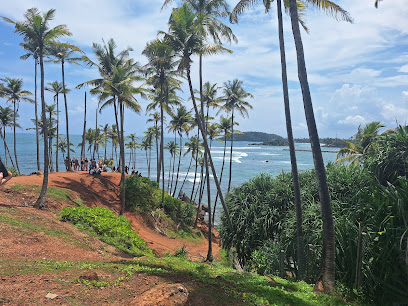
Parrot Rock
Discover the breathtaking beauty of Parrot Rock in Mirissa, a prime spot for panoramic ocean views and vibrant marine encounters.
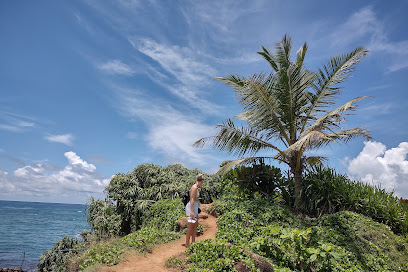
Petti Petti Mirissa
Discover the flavors of Sri Lanka at Petti Petti Mirissa, a cozy restaurant offering fresh seafood and local delicacies in the heart of Mirissa.
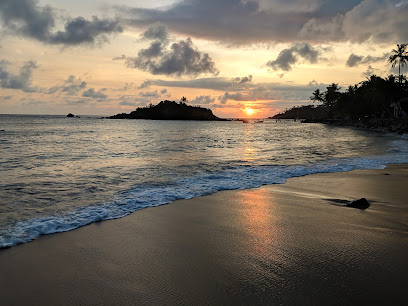
Mirissa Fisheries Harbor
Discover the vibrant Mirissa Fisheries Harbor in Weligama, where local fishing culture meets stunning coastal beauty, perfect for every traveler.
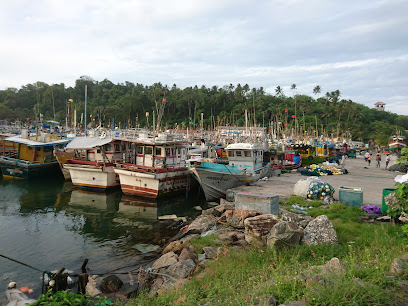
Paradise Beach Club
Experience the serene beauty and exquisite Asian cuisine at Paradise Beach Club in Mirissa, your ultimate tropical getaway in Sri Lanka.

Whales Watching Mirissa with Kumara
Experience the thrill of whale watching in Mirissa, where adventure meets the serene beauty of Sri Lanka's coastline.
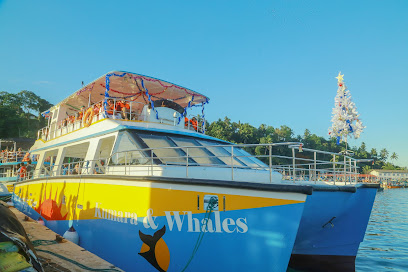
Mirissa Eye Beach Hotel & Restaurant
Experience the flavors of Sri Lanka at Mirissa Eye Beach Hotel & Restaurant, where exquisite dining meets stunning ocean views.
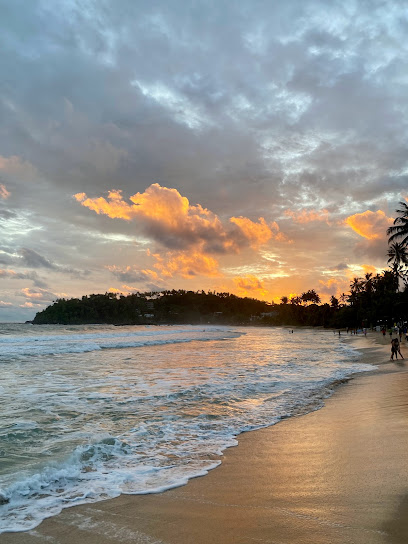
Surf & Yoga, Sri Lanka | All Inclusive Surf Camp & Yoga Retreat in Sri Lanka
Discover the ultimate Surf & Yoga Retreat in Sri Lanka – where adventure meets tranquility along the beautiful coast of Mirissa.
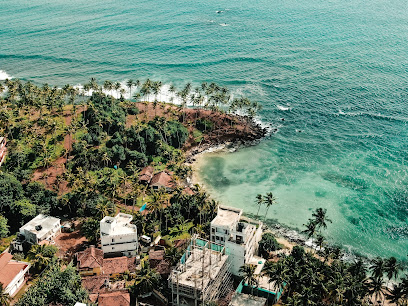
Ourworld Wi Fi Cafe
Experience the perfect blend of local flavors and connectivity at Ourworld Wi Fi Cafe in the heart of Mirissa.
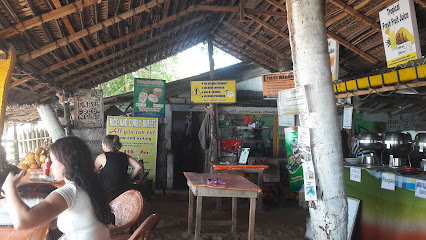
Mila Mirissa
Discover the exquisite flavors of Sri Lanka at Mila Mirissa, where fresh seafood and local ingredients meet stunning ocean views.
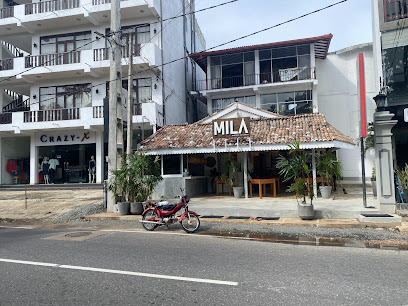
Turtle point
Discover the thrill of water sports at Turtle Point, Mirissa - a haven for adventure seekers in Sri Lanka's stunning coastal paradise.
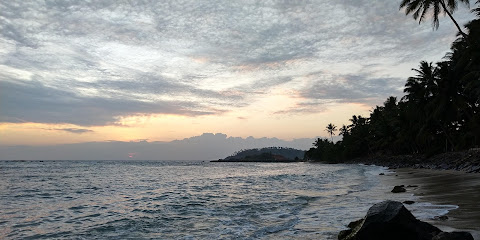
Secret Beach Bar
Experience the laid-back charm of Secret Beach Bar in Mirissa, a hidden gem perfect for enjoying drinks, food, and stunning ocean views.
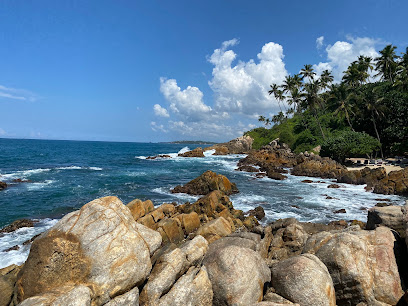
Mirissa Hills
Experience the tranquil beauty and luxury of Mirissa Hills, a premier resort hotel on Sri Lanka’s southern coast, perfect for relaxation and adventure.
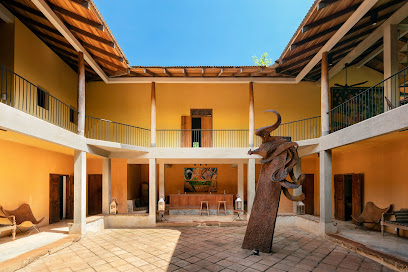
Coco Gate
Experience the best of Mirissa's culinary delights at Coco Gate, where fresh ingredients meet a warm atmosphere.
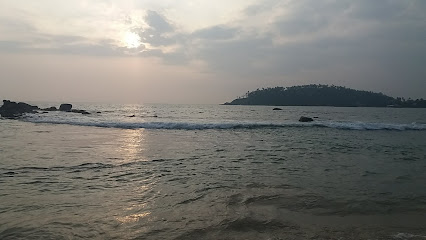
Mirissa Beach
Discover the tranquil beauty of Mirissa Beach in Sri Lanka, featuring golden sands, whale watching, and delicious local cuisine.
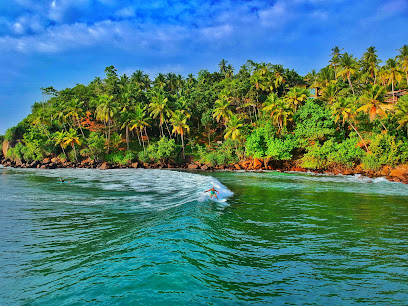
Unmissable attractions to see
Galle Dutch Fort
Experience the rich history and coastal beauty of Galle Dutch Fort, a UNESCO World Heritage site in Sri Lanka.
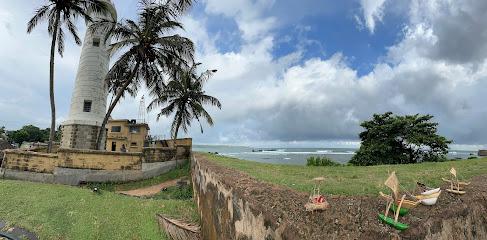
Coconut Tree Hill
Explore the breathtaking views and serene beauty of Coconut Tree Hill in Mirissa, a must-visit destination for any traveler in Sri Lanka.
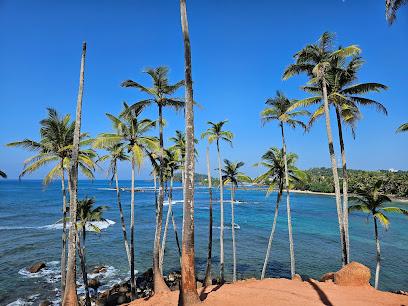
Galle Lighthouse
Explore Galle Lighthouse, a historic beacon in Sri Lanka offering stunning views and rich maritime history in a UNESCO World Heritage site.
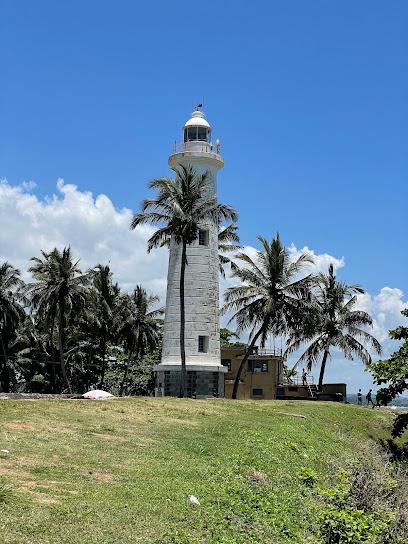
Hummanaya Blow Hole
Experience the awe-inspiring Hummanaya Blow Hole in Kudawella, a natural wonder where the ocean's force creates breathtaking geysers of water.
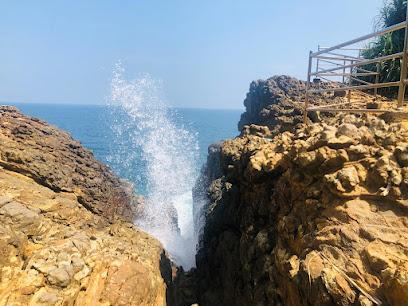
Japanese Peace Pagoda - Rumassala
Explore the tranquil beauty of the Japanese Peace Pagoda in Unawatuna, a stunning Buddhist temple with breathtaking views and serene surroundings.
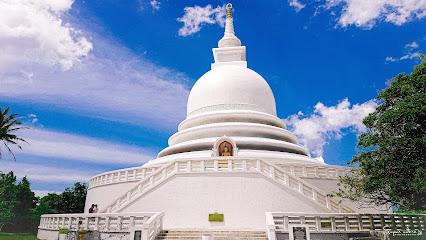
Jungle Beach
Experience the serene charm of Jungle Beach, a hidden paradise on Sri Lanka's southern coast, where lush jungles meet pristine shores.
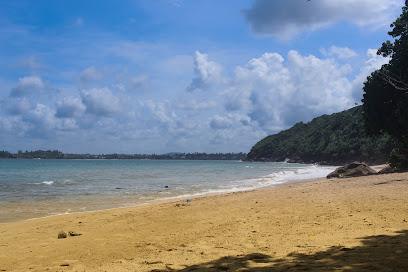
Galle International Cricket Stadium - ගාල්ල ජාත්යන්තර ක්රිකට් ක්රිඩාංගනය
Experience the thrill of cricket at Galle International Cricket Stadium, a stunning venue blending sport and scenic beauty in the heart of Sri Lanka.
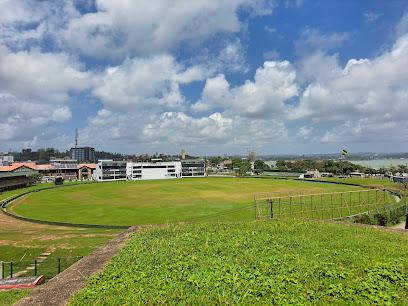
Dondra Head
Explore the breathtaking views and rich maritime history at Dondra Head, Sri Lanka's tallest lighthouse and a must-visit coastal landmark.
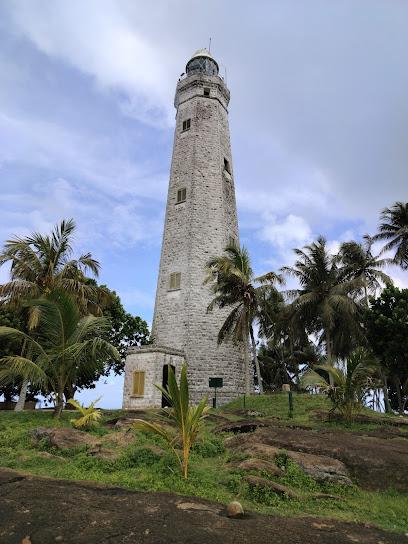
Unawatuna Beach
Discover the tropical charm of Unawatuna Beach, where golden sands meet crystal-clear waters in a vibrant coastal paradise.
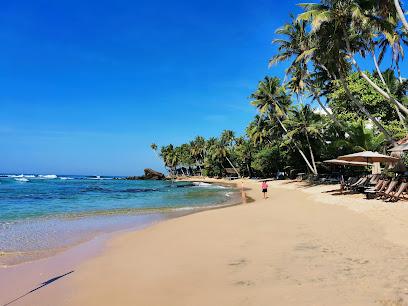
Mirissa Beach
Mirissa Beach is a stunning destination in Sri Lanka known for its golden sands, exciting water activities, and spectacular sunsets, perfect for every traveler.
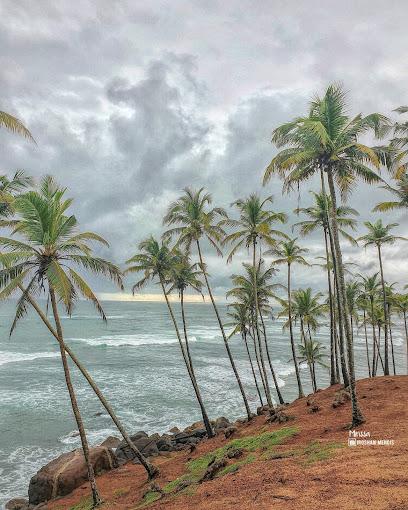
Sea Turtle Farm & Hatchery koggala
Discover the heartwarming journey of sea turtle conservation at Koggala's Sea Turtle Farm & Hatchery, a vital sanctuary for endangered marine life.
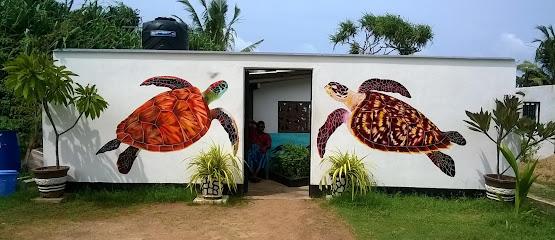
Weherahena Poorwarama Rajamaha Viharaya - Matara | වෙහෙරහේන පුර්වාරාම රජමහා විහාරය - මාතර
Experience the serene beauty and rich cultural heritage of Weherahena Poorwarama Rajamaha Viharaya in Matara, Sri Lanka, a must-visit for spiritual seekers and travelers.
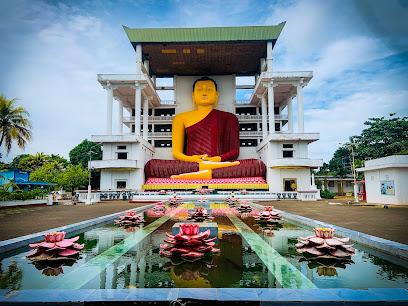
Wewurukannala Buduraja Maha Viharaya
Discover the serene beauty and rich culture of Wewurukannala Buduraja Maha Viharaya, a striking Buddhist temple in Dikwella, Sri Lanka.
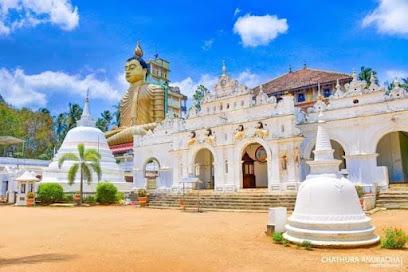
Polhena Beach
Discover the serene beauty of Polhena Beach, a picturesque destination in Sri Lanka perfect for relaxation, snorkeling, and local cuisine.
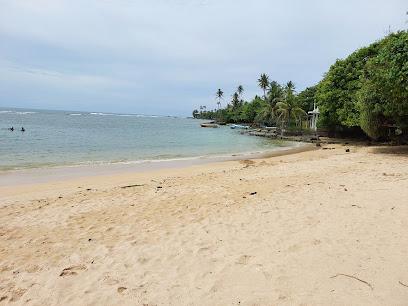
Parrot Rock
Discover the breathtaking views and adventure at Parrot Rock in Mirissa, a top tourist attraction along Sri Lanka's stunning southern coastline.
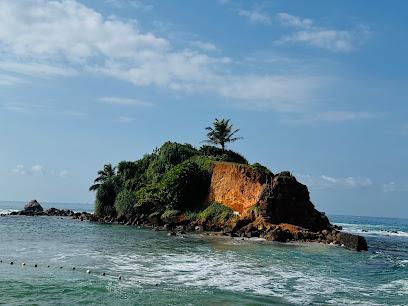
Essential places to dine
No. 1 Dewmini Roti Shop
Experience authentic Sri Lankan cuisine at No. 1 Dewmini Roti Shop in Mirissa—where delicious rotis meet vibrant local culture.
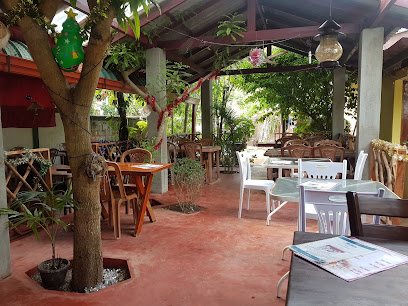
Petti Petti Mirissa
Discover authentic Sri Lankan flavors at Petti Petti Mirissa – where fresh seafood meets stunning coastal views.
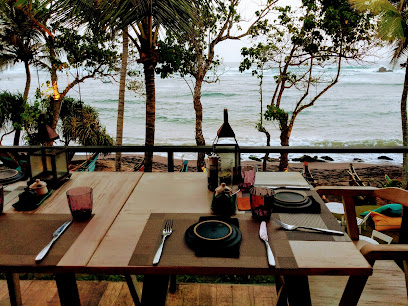
Salt Mirissa Resort
Discover exquisite seafood and authentic Sri Lankan cuisine at Salt Mirissa Resort while enjoying stunning ocean views in beautiful Mirissa.
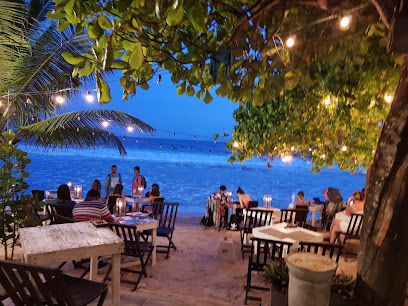
Dhana's Curry Pot
Experience authentic Sri Lankan cuisine at Dhana's Curry Pot in Mirissa - a culinary delight for every food lover.
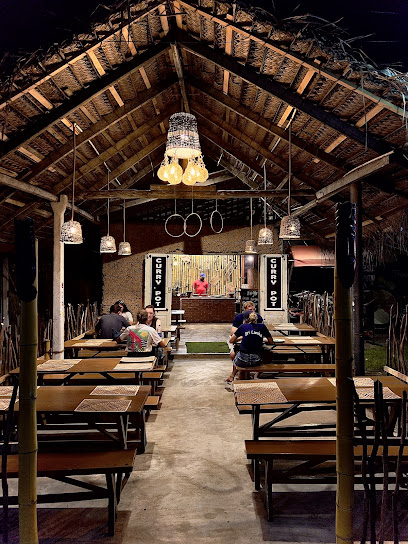
DelTano's Wood Fired Pizza & Pasta
Experience authentic Italian cuisine at DelTano's Wood Fired Pizza & Pasta in Mirissa - where every bite transports you to Italy.
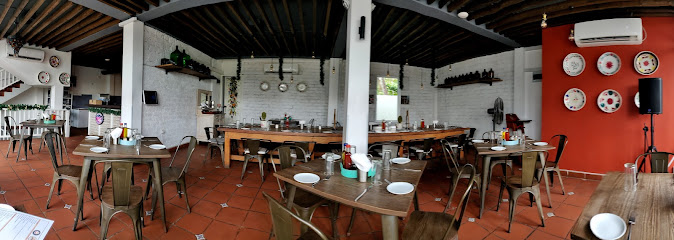
W&D Beach Restaurant
Experience fresh seafood and breathtaking ocean views at W&D Beach Restaurant in Mirissa - a perfect culinary escape on Sri Lanka's coast.

Milky Wave
Experience the best of Italian cuisine with local flavors at Milky Wave in Mirissa - where every meal is a celebration by the sea.
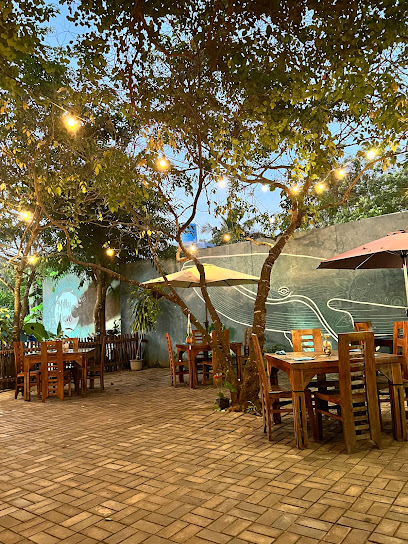
Mirissa Eye Beach Hotel & Restaurant
Experience exquisite dining by the beach at Mirissa Eye Beach Hotel & Restaurant, where local flavors meet breathtaking ocean views.
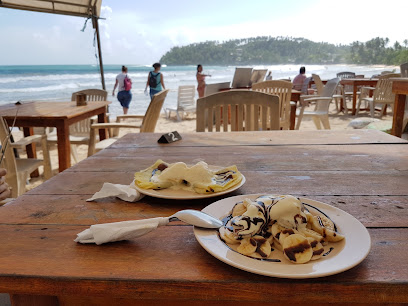
Zouk Mirissa
Experience vibrant dining at Zouk Mirissa - where exquisite cuisine meets lively nightlife in beautiful coastal Sri Lanka.
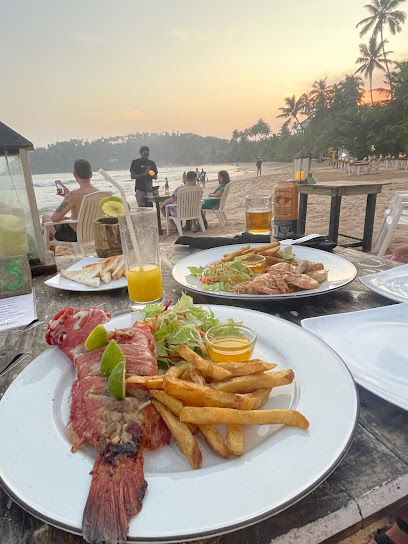
O Mirissa Cafe and Bistro
Experience delightful local flavors at O Mirissa Cafe and Bistro in beautiful coastal Mirissa.
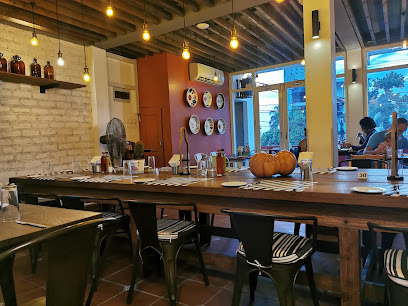
Ambrosia Roti Shop
Discover authentic Sri Lankan cuisine at Ambrosia Roti Shop in Mirissa - where every bite tells a story.
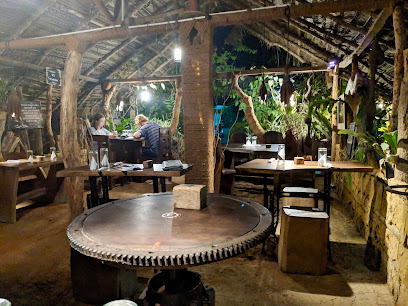
Ceylon Curry House
Experience authentic Sri Lankan flavors at Ceylon Curry House in Mirissa – where every dish tells a story.
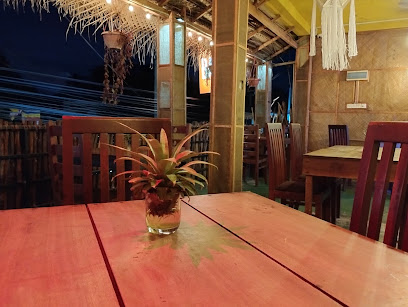
Oh la la !!! Beach bar and restaurant
Experience coastal charm at Oh la la !!! Beach Bar and Restaurant in Mirissa – where delicious food meets breathtaking ocean views.
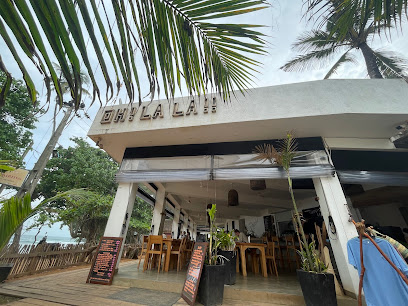
Mirissa Inn restaurant
Experience exquisite seafood and local flavors at Mirissa Inn Restaurant while soaking in breathtaking ocean views in beautiful Mirissa.
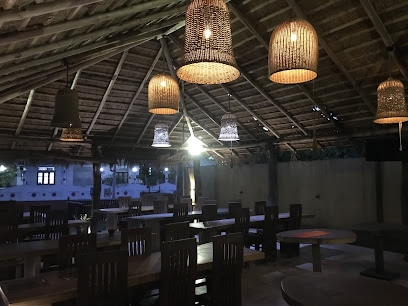
IL Reve Restaurant Mirissa
Experience exquisite Italian and Middle Eastern cuisine at IL Reve Restaurant in Mirissa – where every meal is a delightful journey for your taste buds.
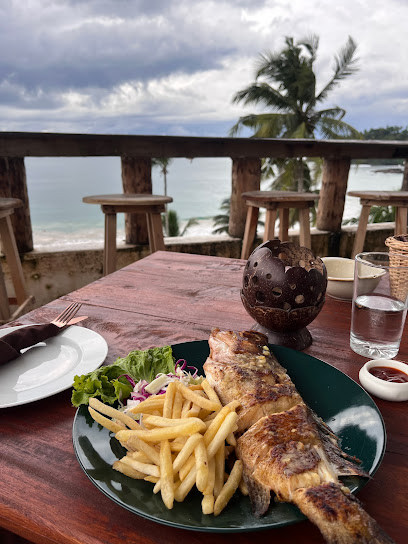
Markets, malls and hidden boutiques
Sea World Boutique
Explore the vibrant local culture through unique crafts and fashion at Sea World Boutique in Mirissa, a shopper's paradise by the beach.
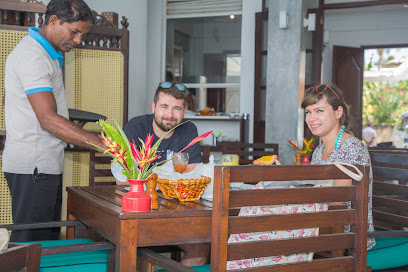
La RoSa
Discover unique Sri Lankan handicrafts and souvenirs at La RoSa, the perfect gift shop in Mirissa for unforgettable treasures.
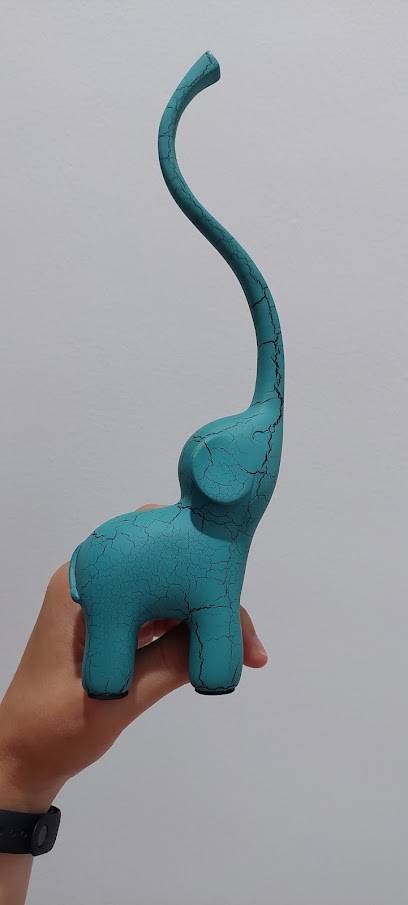
CRAZY-X
Discover unique and stylish clothing at CRAZY-X, a must-visit clothing store in Mirissa, Sri Lanka, perfect for fashion lovers.
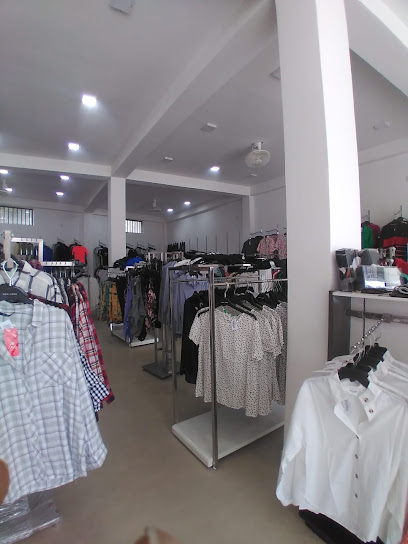
Lolami Boutique
Explore unique fashion and handcrafted treasures at Lolami Boutique in Mirissa, a delightful shopping destination for visitors seeking local Sri Lankan culture.
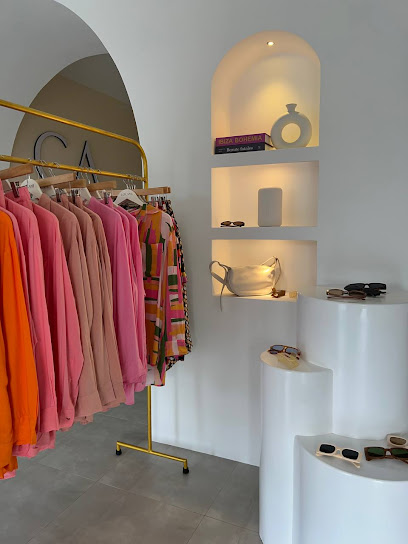
Hawai Ocean Jewelry
Explore the exquisite craftsmanship at Hawai Ocean Jewelry, a must-visit jewelry store near Mirissa beach offering unique handcrafted pieces that capture local culture.
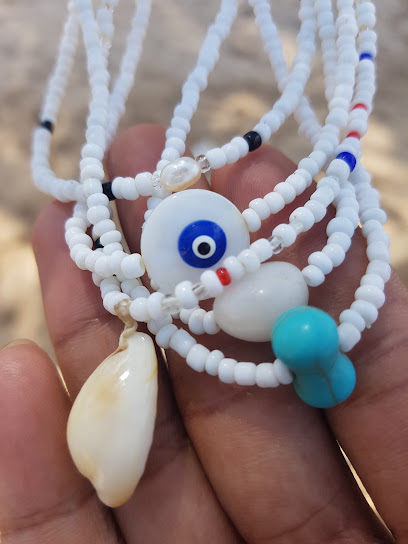
Sri Shop Mirissa
Explore Sri Shop Mirissa for unique souvenirs and handcrafted treasures that embody the spirit of Sri Lanka's rich culture.
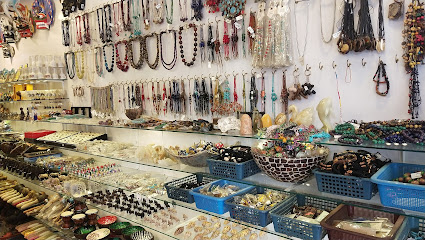
Catch Me By The Sea, Summer Boutique
Explore the vibrant offerings of Catch Me By The Sea, Summer Boutique in Mirissa, where local craftsmanship meets coastal charm.
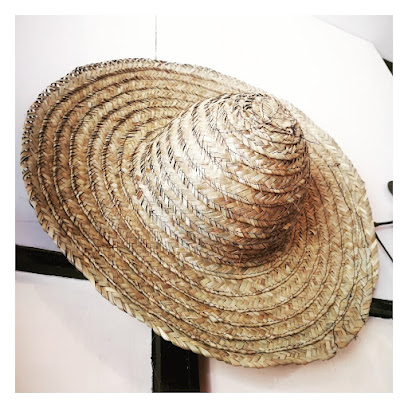
Gayathri Tourist and Tailor Shop
Experience the vibrant culture of Sri Lanka at the Gayathri Tourist and Tailor Shop, where unique fashion meets personalized service.
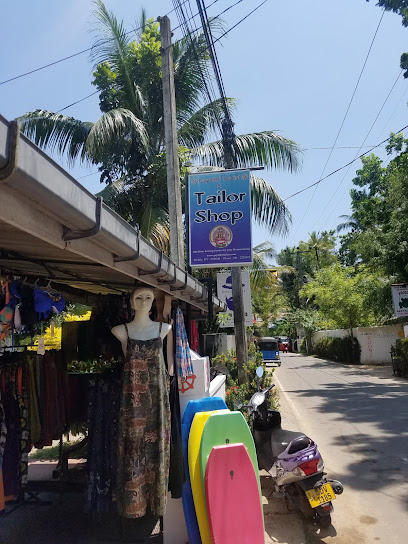
Sun Ray Clothing Shop
Discover tropical fashion and unique souvenirs at Sun Ray Clothing Shop in Mirissa, a must-visit for beach lovers and travelers.
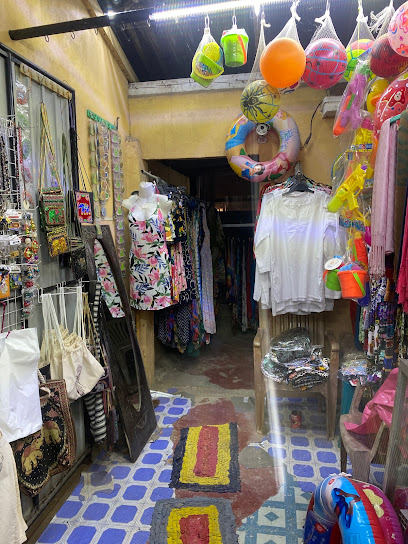
SLOW DAYS
Explore SLOW DAYS in Mirissa for unique clothing that embodies the spirit of Sri Lankan fashion and coastal charm, perfect for every traveler.
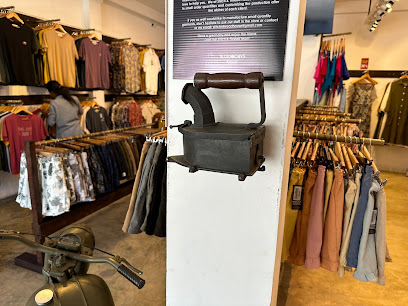
Ourelia Clothing & Accessories
Discover unique handmade clothing and accessories at Ourelia Clothing & Accessories in Mirissa, your go-to boutique for Sri Lankan craftsmanship.
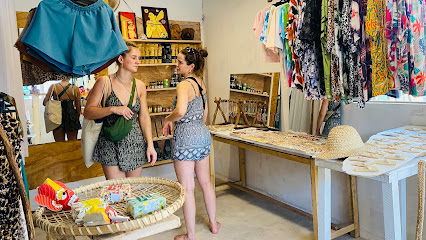
Ayubowan Suvinier And Traditional mask
Explore authentic Sri Lankan craftsmanship at Ayubowan Suvinier And Traditional Mask in Mirissa, offering exquisite handcrafted souvenirs and traditional masks.
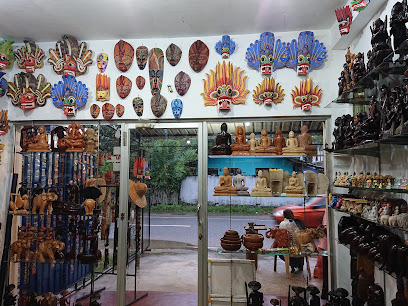
Sha Handicrafts (Gems & Jewellery)
Explore the exquisite craftsmanship of Sri Lankan jewelry at Sha Handicrafts in Mirissa, offering unique gems and handcrafted treasures.
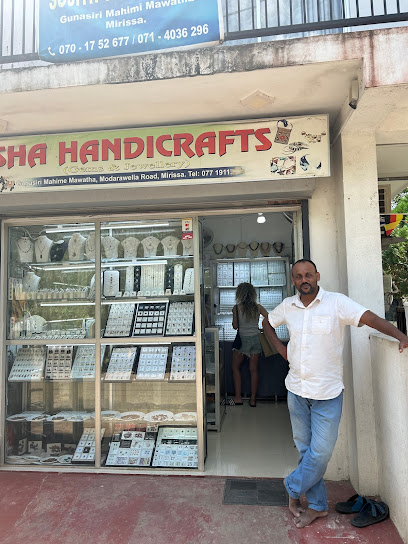
Ceylon Sri Mirissa
Explore Ceylon Sri Mirissa for unique handicrafts and souvenirs that embody the vibrant culture of Sri Lanka.
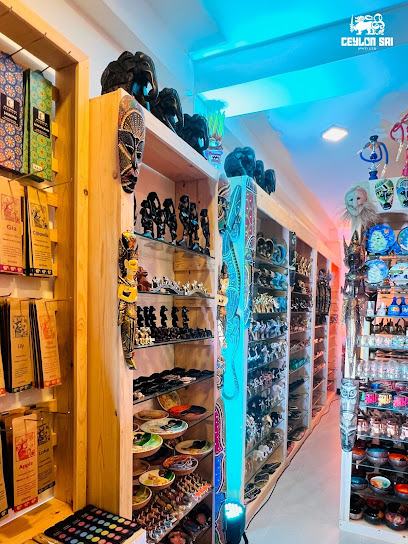
CUBA OUTFITTERS
Explore Cuba Outfitters in Mirissa for a stylish shopping experience featuring vibrant clothing and local craftsmanship.
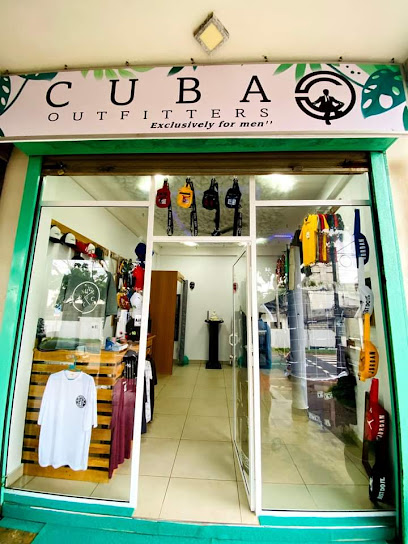
Essential bars & hidden hideouts
Mirissa Eye Beach Hotel & Restaurant
Experience the vibrant atmosphere and exquisite flavors at Mirissa Eye Beach Hotel & Restaurant, your perfect coastal retreat in Sri Lanka.
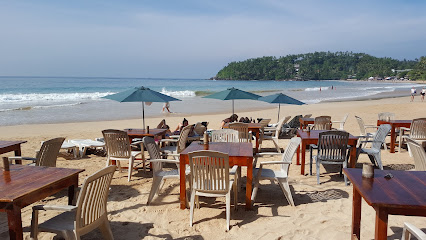
Zouk Mirissa
Discover Zouk Mirissa, a vibrant bar and restaurant where beach life meets culinary delight in the heart of Sri Lanka's coastal beauty.
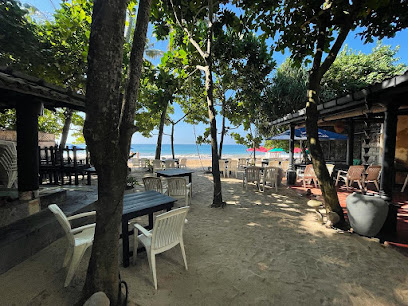
O Mirissa Cafe and Bistro
Discover the flavors of Sri Lanka at O Mirissa Cafe and Bistro, a vibrant eatery in the heart of Mirissa offering local and international cuisine.
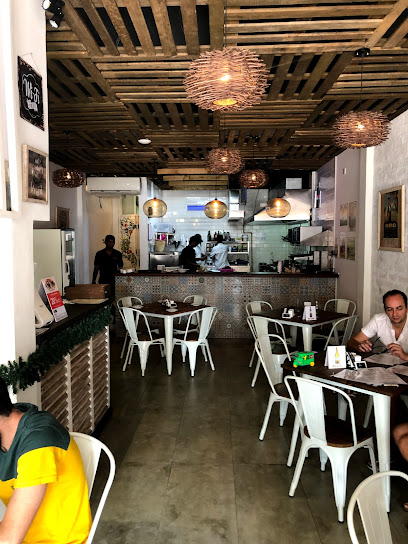
Oh la la !!! Beach bar and restaurant
Experience the ultimate beachside dining at Oh la la !!! Beach Bar and Restaurant in Mirissa, where vibrant flavors meet stunning ocean views.
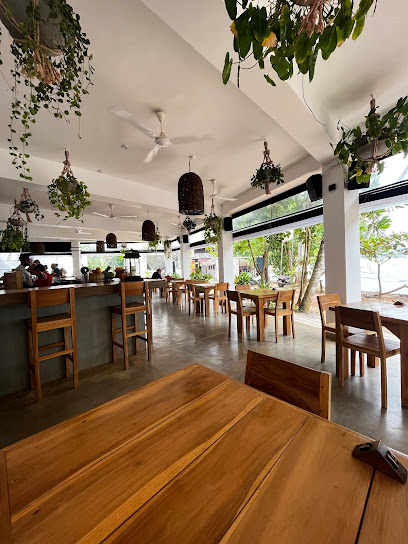
Sudu Weli beach bar and resturant
Experience the vibrant atmosphere and delicious seafood at Sudu Weli Beach Bar and Restaurant in Mirissa, a must-visit for beach lovers.
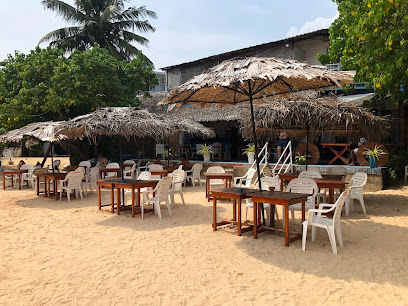
Secret Beach Bar
Discover the tranquil ambiance of Secret Beach Bar, the perfect spot for cocktails and local cuisine on Mirissa Beach.
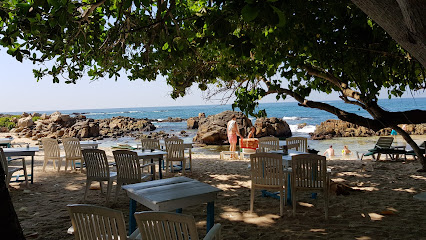
Surf Bar Mirissa
Discover the vibrant atmosphere at Surf Bar Mirissa, where refreshing drinks, delicious food, and stunning ocean views await.
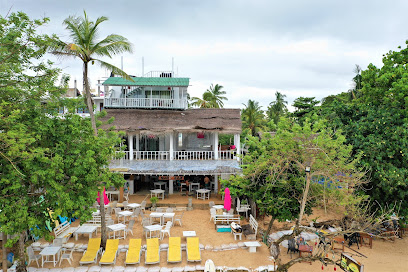
Tipsy Turtle Mirissa
Experience the vibrant flavors and coastal charm at Tipsy Turtle Mirissa, your go-to destination for delightful dining in Sri Lanka.
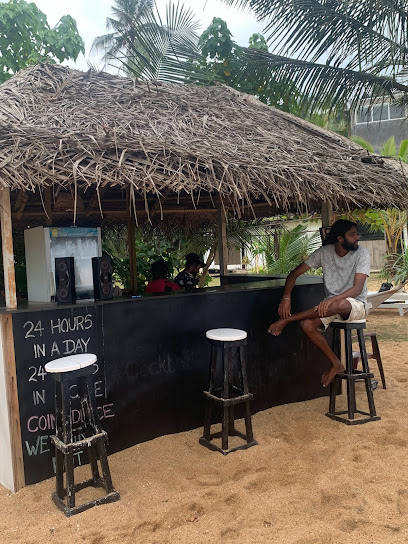
Bar Rumba Restaurant Mirissa
Experience the vibrant flavors of Sri Lanka at Bar Rumba Restaurant in Mirissa, where the ocean meets culinary excellence.
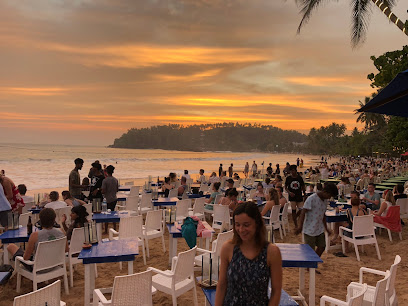
Taboo Lounge Mirissa
Discover the vibrant dining scene at Taboo Lounge Mirissa, where fresh seafood and fusion tapas meet stunning ocean views.
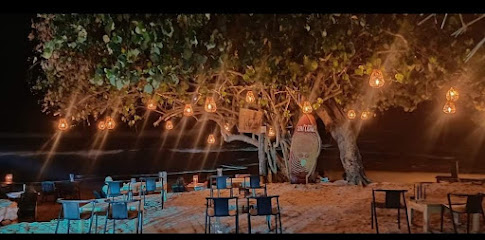
SunSet Bar
Discover the breathtaking sunsets and refreshing drinks that await you at SunSet Bar in Mirissa, the ultimate seaside escape.
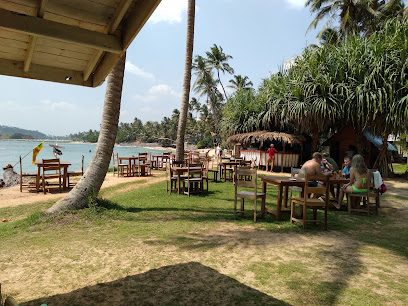
Turtle Bar & Restaurant
Discover the flavors of Sri Lanka at Turtle Bar & Restaurant, where coastal views meet delicious local cuisine in the heart of Mirissa.
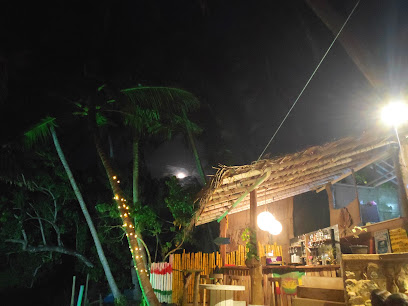
Water Creatures Beach Guest Restaurant & Surf Bar
Experience the flavors of Sri Lanka at Water Creatures Beach Guest Restaurant & Surf Bar, where fresh seafood meets stunning beach views.
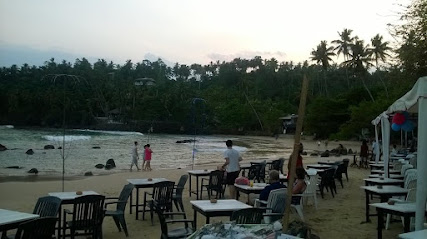
Mirissa Randiya Sea Food Restaurant, Coffee & Pub
Experience the best of Sri Lankan seafood at Mirissa Randiya, where ocean views and delicious dishes meet in a relaxed atmosphere.
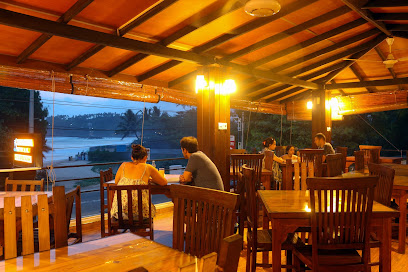
Local Phrases
-
- Helloහෙලෝ
[helo] - Goodbyeවවා
[vavā] - Yesඔව්
[ova] - Noනෑ
[nē] - Please/You're welcomeකරුණාවෙන්/ආයුබෝවන්
[karunāvēn/āyubōvan] - Thank youඔබට ස්ත්රී
[ōbata stri] - Excuse me/Sorryකියනවා/සපුරාවෙ
[kiyanavā/sapurāvē] - How are you?ඔයා කෙළේ කොහොමද?
[ōyā kēlē kohomada?] - Fine. And you?මාත් හොදේ. ඔයා?
[māth hōdē. ōyā?] - Do you speak English?ඔයාට ඉංග්රීසි කතා කරයිද?
[ōyāt ingirīsi kathā karayida?] - I don't understandමට එක්ක නෑ
[matē ekk nē]
- Helloහෙලෝ
-
- I'd like to see the menu, pleaseමම මෙනු බලන්නමු, කරුණාවෙ
[mama menu balanamum, karunāvē] - I don't eat meatමම මස් කනවානමු
[mama mas kanavānamu] - Cheers!සුමන්සාවක්!
[sumansāvak] - I would like to pay, pleaseමම ගෙවන්නමු, කරුණාවෙ
[mama gevannamu, karunāvē]
- I'd like to see the menu, pleaseමම මෙනු බලන්නමු, කරුණාවෙ
-
- Help!උක්කාවෙ!
[ukkavē] - Go away!බියෙ!
[biyē] - Call the Police!පොලිස් කෙල්ලේ!
[polis kellē] - Call a doctor!පාපාටු කෙල්ලේ!
[papātu kellē] - I'm lostමම අතුරාලා
[mama aturālā] - I'm illමම අවුරුදු
[mama avurudu]
- Help!උක්කාවෙ!
-
- I'd like to buy...මම මිල්දීමක් මානා
[mama miladīmak mānā] - I'm just lookingමම දැක්කානවා
[mama dēkkanavā] - How much is it?එය කොහොමද?
[ēya kohomada?] - That's too expensiveඑය වේගයි
[ēya vēgayi] - Can you lower the price?ඔයා මිල අඩු කරනවාද?
[ōyā mila adu karanavadā?]
- I'd like to buy...මම මිල්දීමක් මානා
-
- What time is it?දිනවල කොහොමද?
[dinavala kohomada?] - It's one o'clockඑකට
[ekata] - Half past (10)දහං පස් දහය
[dahan pas dahaya] - Morningපෙරවල්
[pervala] - Afternoonඅපලා
[apalā] - Eveningසවස
[sawasa] - Yesterdayඊයේ
[īyē] - Todayඅද
[ada] - Tomorrowහෙයින්
[heyin] - 1එක
[eka] - 2දෙක
[dēka] - 3තුන
[thuna] - 4හතලිය
[hathaliya] - 5පහ
[paha] - 6හය
[haya] - 7හත
[hatha] - 8අට
[ata] - 9නමන්
[naman] - 10දහය
[dahaya]
- What time is it?දිනවල කොහොමද?
-
- Where's a/the...?කොහොමදේ...?
[kohomadē...?] - What's the address?ලිපිනය කොහොමදේ?
[lipinaya kohomadē?] - Can you show me (on the map)?ඔයා මට පෙන්නනේ ද?
[ōyā mata pēnnanē da?] - When's the next (bus)?ඊළඟට යළි කොහොමදේ (බස්)?
[īlagata yali kohomadē (bas)?] - A ticket (to ....)ප්රාඩෝපනය (එකට....)
[prādōpanaya (ekata....)]
- Where's a/the...?කොහොමදේ...?
History of Mirissa
-
Mirissa's strategic location along the southern coast of Sri Lanka made it an essential port for ancient maritime trade routes. Historical records indicate that Arab, Chinese, and Indian traders frequented the area, exchanging goods such as spices, gems, and textiles. The natural harbor of Mirissa offered safe anchorage for these trading vessels, fostering cultural and economic exchanges that shaped the region's development.
-
During the Anuradhapura and Polonnaruwa periods, Buddhism spread extensively throughout Sri Lanka, including Mirissa. Evidence of this can be found in the form of ancient stupas, rock inscriptions, and monastic sites around the area. These relics highlight Mirissa's role in the religious and cultural proliferation of Buddhism in the island nation.
-
In the 16th century, the arrival of the Portuguese marked the beginning of European colonial influence in Mirissa. The Portuguese, Dutch, and later the British, left indelible marks on the architecture, language, and culinary traditions of the region. Notably, the Dutch Fort in nearby Galle served as a significant administrative center during the Dutch colonial period, indirectly impacting Mirissa's development.
-
Mirissa played a crucial role in the lucrative cinnamon trade during the colonial era. The spice, native to Sri Lanka, was highly sought after in Europe, and Mirissa's proximity to cinnamon plantations made it a key export point. This trade brought wealth and infrastructure to the area, contributing to its historical significance.
-
In recent history, Mirissa has become renowned for its whale watching opportunities. The waters off Mirissa are home to various species of whales, including the blue whale, the largest animal on earth. This burgeoning industry began in the early 2000s, transforming Mirissa from a quiet fishing village into a bustling tourist destination.
-
The 2004 Indian Ocean tsunami had a devastating impact on Mirissa, causing significant loss of life and property. In the aftermath, the community rallied together to rebuild and recover. International aid and local resilience have restored much of Mirissa's infrastructure, leading to a resurgence in tourism and economic activity.
Mirissa Essentials
-
Mirissa is located on the southern coast of Sri Lanka, approximately 150 kilometers south of Colombo. The nearest international airport is Bandaranaike International Airport in Katunayake. From the airport, you can take a taxi or private car to Mirissa, which takes around 2.5 to 3 hours via the Southern Expressway. Alternatively, you can take a train from Colombo Fort Railway Station to Weligama, which is the nearest station to Mirissa. The train journey offers scenic coastal views and takes around 3 to 4 hours. From Weligama, you can take a tuk-tuk or taxi to Mirissa, which is about 7 kilometers away.
-
Mirissa is a small town and many of its attractions, including the beach, are within walking distance. For short trips, tuk-tuks are readily available and are a convenient mode of transport. For longer journeys, you can hire a taxi or use ride-sharing apps like PickMe. Public buses also operate along the main road, connecting Mirissa to nearby towns such as Weligama and Matara. If you prefer more flexibility, renting a scooter or a bicycle is a popular option for exploring the area at your own pace.
-
The official currency of Sri Lanka is the Sri Lankan Rupee (LKR). Credit and debit cards are accepted in most hotels, restaurants, and larger shops in Mirissa. However, it is advisable to carry cash for smaller establishments, street vendors, and tuk-tuk rides. ATMs are available in Mirissa, but it is wise to withdraw sufficient cash in larger towns like Weligama or Matara to ensure you have enough funds.
-
Mirissa is generally a safe destination for tourists, but it is always advisable to take standard precautions. Avoid walking alone at night in secluded areas and keep an eye on your belongings in crowded places. While there are no specific high-crime areas targeting tourists, it is important to stay vigilant and aware of your surroundings. Petty theft, such as bag snatching and pickpocketing, can occur, so always secure your valuables.
-
In case of emergency, dial 119 for police assistance or 110 for medical emergencies. Mirissa has a small medical clinic, but for more serious health issues, the larger hospitals in Matara or Galle are better equipped. It is recommended to have travel insurance that covers medical emergencies. Pharmacies are available in Mirissa where you can purchase over-the-counter medications for minor health issues.
-
Fashion: Do wear modest clothing, especially when visiting religious sites. Avoid wearing overly revealing swimwear on public beaches. Religion: Do respect local customs and traditions. Always remove your shoes and cover your head and shoulders when entering temples. Public Transport: Do be respectful and give up your seat to elderly passengers. Don't eat or drink on public transport. Greetings: Do greet people with a smile and a slight bow of the head. A traditional greeting is 'Ayubowan,' which means 'May you live long.' Eating & Drinking: Do try local delicacies and accept food offerings graciously. Don’t refuse hospitality, as it is considered impolite.
-
To experience Mirissa like a local, visit the early morning fish market where you can see the daily catch and buy fresh seafood. Engage with local fishermen and learn about their way of life. Don’t miss the opportunity to enjoy a traditional Sri Lankan breakfast of hoppers and coconut sambol at a local eatery. For a unique experience, take a whale watching tour, as Mirissa is one of the best places in the world to see blue whales. Lastly, make time to relax on Secret Beach, a hidden gem known for its tranquility and stunning views.
Trending Landmark in Mirissa
-
Coconut Tree Hill
-
Parrot Rock
-
Petti Petti Mirissa
-
Mirissa Fisheries Harbor
-
Paradise Beach Club
-
Whales Watching Mirissa with Kumara
-
Mirissa Eye Beach Hotel & Restaurant
-
Surf & Yoga, Sri Lanka | All Inclusive Surf Camp & Yoga Retreat in Sri Lanka
-
Ourworld Wi Fi Cafe
-
Mila Mirissa
-
Turtle point
-
Secret Beach Bar
-
Mirissa Hills
-
Coco Gate
-
Mirissa Beach
Nearby Cities to Mirissa
-
Things To Do in Matara
-
Things To Do in Unawatuna
-
Things To Do in Galle
-
Things To Do in Hikkaduwa
-
Things To Do in Bentota
-
Things To Do in Nuwara Eliya
-
Things To Do in Ella
-
Things To Do in Colombo
-
Things To Do in Kandy
-
Things To Do in Negombo
-
Things To Do in Sigiriya
-
Things To Do in Polonnaruwa
-
Things To Do in Anuradhapura
-
Things To Do in Trincomalee
-
Things To Do in Kanyakumari








